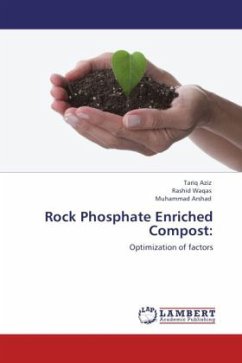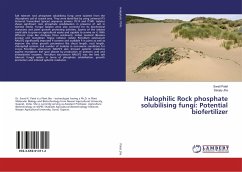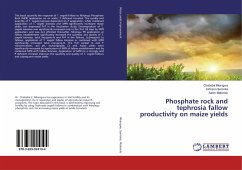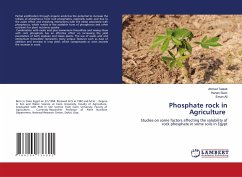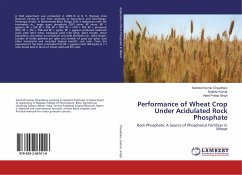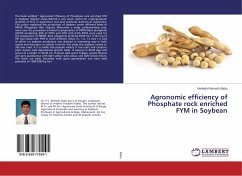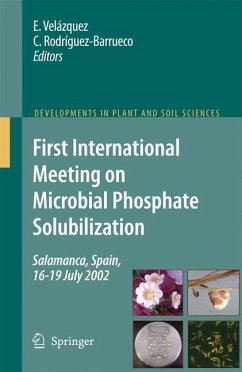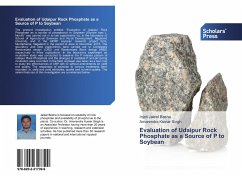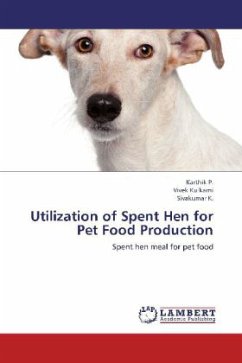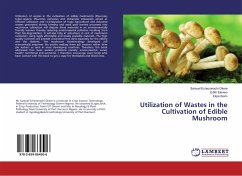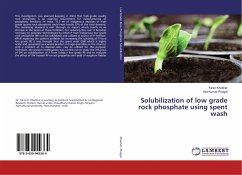
Solubilization of low grade rock phosphate using spent wash
Versandkostenfrei!
Versandfertig in 6-10 Tagen
36,99 €
inkl. MwSt.

PAYBACK Punkte
18 °P sammeln!
This investigation was planned keeping in mind that high-grade quality rock phosphate is an essential requirement for manufacturing of phosphatic fertilizers. In India, 15.3 mt of indigenous deposits of high grade quality rock phosphate could meet hardly 35% of the total demand. The remaining demand is met through its import which results in an increase in the prices of these fertilizers. For reducing this cost, it becomes necessary to generate technologies by which P from indigenous low grade rock phosphate (RP) can be solubilized and utilized as source of P fertilizer. While exploring the op...
This investigation was planned keeping in mind that high-grade quality rock phosphate is an essential requirement for manufacturing of phosphatic fertilizers. In India, 15.3 mt of indigenous deposits of high grade quality rock phosphate could meet hardly 35% of the total demand. The remaining demand is met through its import which results in an increase in the prices of these fertilizers. For reducing this cost, it becomes necessary to generate technologies by which P from indigenous low grade rock phosphate (RP) can be solubilized and utilized as source of P fertilizer. While exploring the options available for increasing the solubility of P from low grade RP, it was thought that the spent wash (SW) which is highly acidic and generated as a waste product in huge quantities in the country, with a problem of its disposal also, may be utilized for this purpose. Therefore, the present investigation was carried out to study the influence of SW on solubilization of P from Udaipur low grade RP and to evaluate the effect of SW treated RP on soil properties and yield of sorghum fodder



